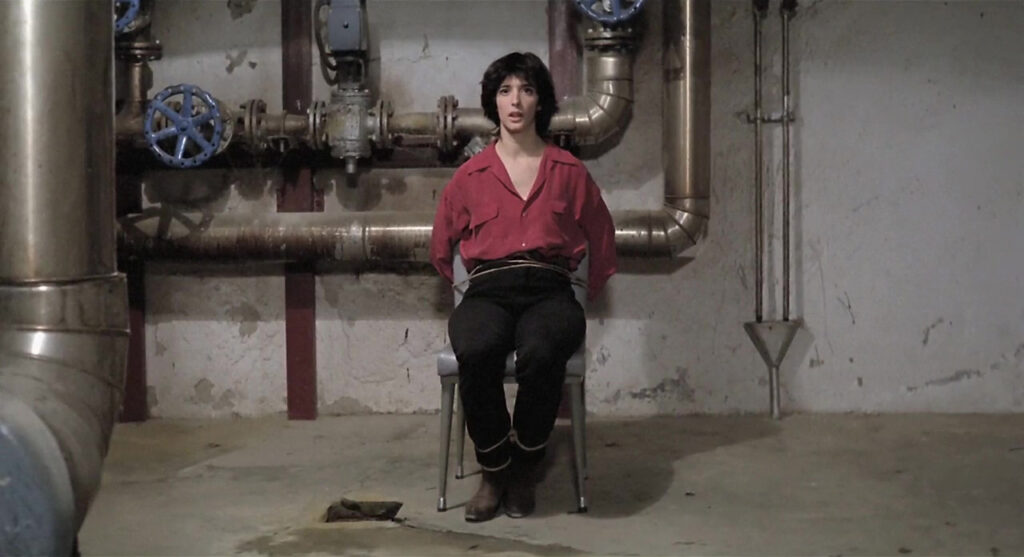Thesis (1996) Movie Review
I still clearly remember the first time I watched Alejandro Amenabar's 1996 thriller Thesis over a decade ago. As a young film buff in my early 20s, I always sought lesser-known films to expand my cinematic horizons beyond the typical Hollywood blockbusters. A friend recommended the Thesis to me, praising its clever story and ability to keep viewers guessing until the end.
Since then, Thesis has stayed with me as one of those boundary-pushing films that doesn't shy away from exploring morally gray areas and asking difficult questions.
While revisiting it recently, I was struck by how well it has held up and how ahead of its time it seemed in some respects. Though not a perfect film, Thesis proved to be a thought-provoking and suspenseful 2.5-hour experience that has earned its place in my film canon.
The story follows Angela, a film student writing her Thesis on violence in the media. In her research, she comes across an unidentified snuff film depicting the real murder and torture of a young woman. Her investigation into the disturbing footage pulls her down a dark rabbit hole, putting her own life in danger.

Director Amenabar sets an instantly unsettling tone with the film's opening scene, where onlookers gather grimly around a suicide victim on train tracks but can't look away from the gruesome sight.
From there, he masterfully builds an intense psychological thriller that keeps the viewer guessing what's real and what's not. The young cast, led by a believable turn from Ana Torrent as Angela, helps ground the story in realism. They sell the characters' curiosity, fear, and moral dilemma around exposing themselves to such extreme violence on screen. The gloomy Madrid settings also aid in cultivating an ominous atmosphere throughout.
The film truly succeeds in its willingness to intelligently take on difficult questions about violence, consent, and human nature rather than offering easy answers. Amenabar doesn't stop depicting human curiosity's visceral, dark side, showing how even well-adjusted people can be drawn to the taboo and forbidden. Characters acknowledge that watching violence, even non-consensually, could make one complicit in some way.
At the same time, he doesn't condemn viewership as a sign of sickness either. The complex themes gave me much to think about regarding society's fraught relationship with representing violence and death on screen. I appreciate that the film invited discussion rather than preaching. We must acknowledge humans as flawed beings capable of good and evil rather than reducing them to one-dimensional stereotypes.

While the final confrontation wraps up a bit too neatly for my tastes, I didn't feel the ending undermined the thought-provoking nature of the film up to that point. On revisit, I noticed clever foreshadowing and connections between characters I had missed the first time. The mystery element remains compelling thanks to Amenabar's skillful misdirection.
Of course, no film is perfect, and Thesis has flaws. The slow pace may test viewer patience at some points. Certain character actions also don't always hold up to scrutiny. However, these minor gripes didn't stop me from enjoying the atmospheric journey or engaging with the cerebral themes at the story's core.
Ultimately, I can see why Thesis has garnered a cult following among genre fans and remains a seminal work from Amenabar. It proves that scary movies don't need buckets of gore or explosions to unnerve - sometimes, a thought-provoking psychological approach can be much more disturbing.
While not redefining cinema, the Thesis is a gritty example of how the medium can start important conversations if filmmakers push creative boundaries. It's a film I keep returning to every few years, and I always find new things to appreciate.
Movie Rating: 3.5/5
Note: 3 is the median. Anything above 3 is a recommended watch.